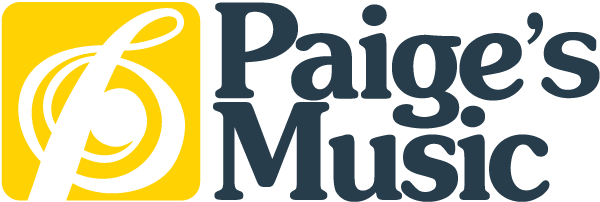FAQ: How Do I Know If I Need To Upgrade My Instrument?

At Paige’s Music, we offer a wide variety of instruments that are substantial upgrades or step-ups to the standard student level instruments most musicians start with. How do you know you need a higher quality instrument? Here are a few questions to ask:
How is my instrument holding me back? For example, you are at a point where you have mastered the C major scale and can play it in consistent 16th notes at 120 beats per minute. Despite your great technique, no matter how much you clean and oil your valves, they just do not move as fast as you need them to move and it becomes very difficult to make each note speak clearly. When you come to this conclusion, it is time to try a more advanced trumpet with lighter, faster valves.
What do I need that my instrument does not have? As you advance through the repertoire of your instrument, you could encounter an etude or composition that requires lower or higher pitches than your student-level instrument is capable of producing. This is a common issue particularly in the woodwind family. For example, it is common for an oboist to need a third octave key several orchestral pieces. The third octave key is usually available in professional level oboes. On the low end of things, the B-C# connection on a saxophone may not be clear on a student level-instrument, no matter how good the player is. This a problem a premium instrument can help resolve thanks to higher-level construction and more premium parts.
Is my instrument helping or hurting the sound I want? For example, your student-level cello may not produce the full tone you want, despite a great setup with premium strings and great bow technique. The quality of wood and craftsmanship plays a great deal in the tone quality of your instrument. Generally, the more experienced the luthier, the higher quality the sound will be.
Once you have asked and answered these three questions, it is time to try an instrument and experiment with it to see if it can help resolve your problems.
Here are a few tips to testing the instrument once you have answered the above questions:
- Test different instruments playing the same thing the same way. It can be very difficult to discern the differences between two instruments if you are playing them differently.
- Test the extremes of the instrument. This is a great time to utilize chromatic scales! Try playing chromatically to highest and lowest notes you can play. This will give you a great idea about the quality of each note on the instrument. This is also a great way to test the quality of the valves or keys of the instrument.
- Take detailed notes on your experience of each instrument that you test! This can be a useful tool when testing multiple instruments over longer periods.
One more thing to remember! A new or different instrument is no substitute for practice. Attempt to max out the instrument you have. Great finger technique, great range, and great tone quality is down to the player. A great musician can make any make or model of their respective instrument sound great but a great instrument cannot transform your playing ability on its own.

No Comments